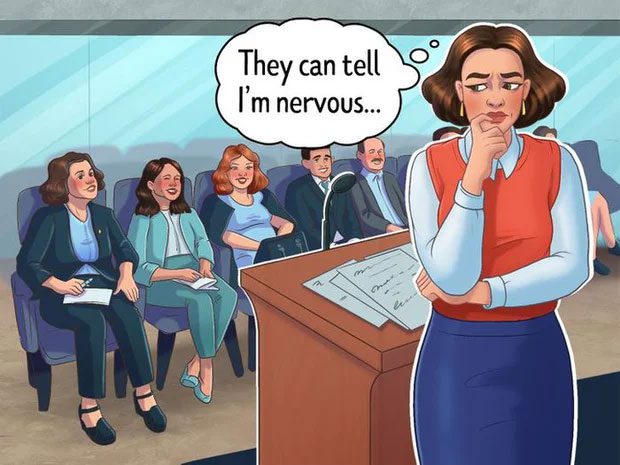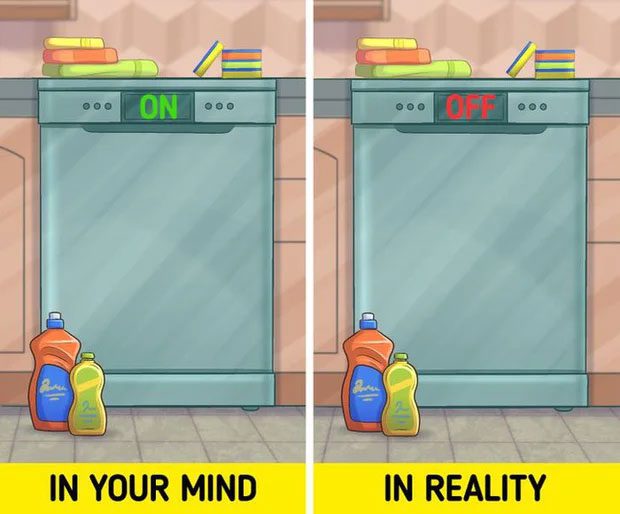There will always be moments when you misspeak, lose focus, or misremember. These occurrences can stem from a psychological phenomenon inherent to our brains.
Psychological Effects That Deceive Us Daily
You may have heard that humans only use 10% of their brains, but this is actually a myth with no basis in reality. Most of our brains are always active, even while we sleep. Yet, they often “fool” us with the following psychological phenomena:
1. Barnum Effect

This is why people believe in astrology.
The first psychological phenomenon is known as the Barnum Effect, also referred to as the Forer Effect. This explains why people believe in astrology, online personality tests, or fortune cookies. Individuals tend to trust personality descriptions or vague messages that could apply to most people, mistakenly believing that these descriptions are specifically tailored to them.
2. Illusion of Transparency

This illusion can make many feel anxious when speaking in public.
When we experience strong emotions like nervousness or anxiety, we may believe that others can see these feelings clearly. The gap between our perception and what others actually observe is known as the illusion of transparency. This can lead to heightened anxiety when speaking in front of an audience, as we assume everyone can see our stress, when in fact, that may not be the case.
3. Freudian Slip

This phenomenon refers to slips of the tongue or misstatements.
Have you ever intended to say something but ended up saying something completely different? This often occurs while speaking but can also happen in writing. This is known as a Freudian slip or parapraxis, which refers to slips of the tongue or misstatements.
According to the famous neurologist and founder of psychoanalysis Sigmund Freud, unconscious thoughts can sometimes surface in conscious actions, leading you to say things you did not intend to express in your mind beforehand.
For example, a child might mistakenly call their teacher “Dad,” or a woman might want to tell her friend she loves Daniel but accidentally says the name of her ex-boyfriend instead. Due to this slip, her friend might conclude that she still has feelings for her ex when it was merely a mistake.
4. Availability Heuristic

This phenomenon occurs when our brain seeks the shortest path to analyze a topic.
The availability heuristic is the phenomenon when our brains try to create the quickest route to analyze a topic by providing the most readily available examples. For instance, after watching several news reports about car thefts, you might conclude that car theft is very common and serious in your area, even if that is not the reality.
5. False Memories

False memories may seem real to you but are created by your mind.
Our memories are fragile and more susceptible to influence than we realize. They do not serve as precise recordings of past events. What we remember can change based on how and when we recall it. “False memories” frequently occur. These memories may feel real to you but are actually fabricated by your mind. For example, you might believe you turned on the dishwasher before leaving the house, but upon returning, you find it off. You might think the machine is broken or that someone has entered your home, when in reality, you simply misremembered.
6. Ironic Process Theory

The more you try to forget something and “tell” your brain not to think about it, the more you will think about it.
Most of us do not want to dwell on unfortunate experiences or embarrassing moments. However, the more we try to suppress those memories, the more they surface in our minds. The more you want to forget something and “tell” your brain not to think about it, the more it will occupy your thoughts.
7. Surplus Attention
Do you find it hard to concentrate? Sometimes, it may simply be that you are caught in the trap of surplus attention phenomenon. This occurs when our attention wanes throughout the day after continuously switching from one task to another without truly completing any of them. As a result, it becomes difficult to focus on anything. To cope with this phenomenon, try to create a schedule and allocate time for your tasks.





















































